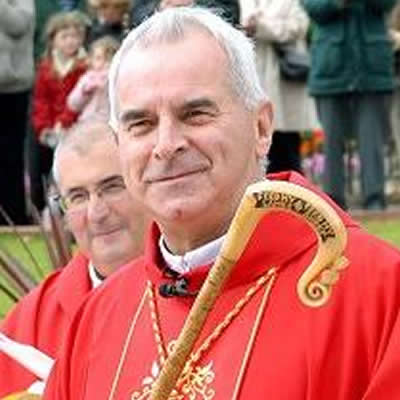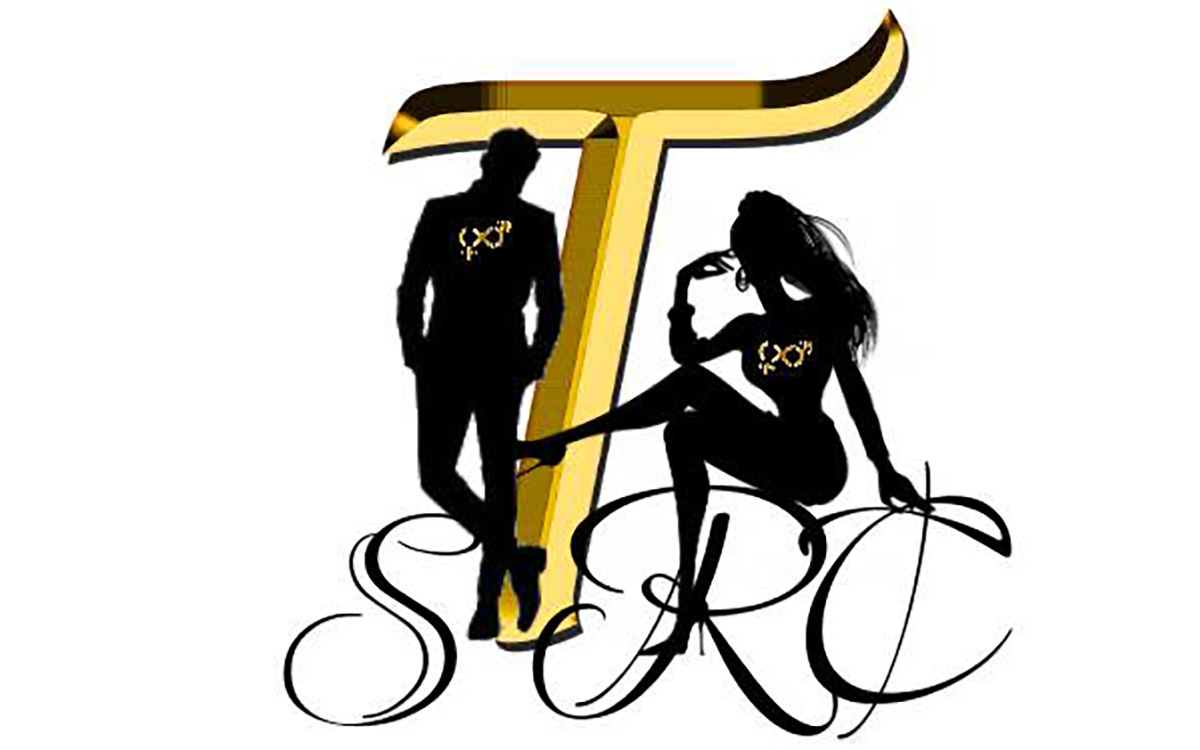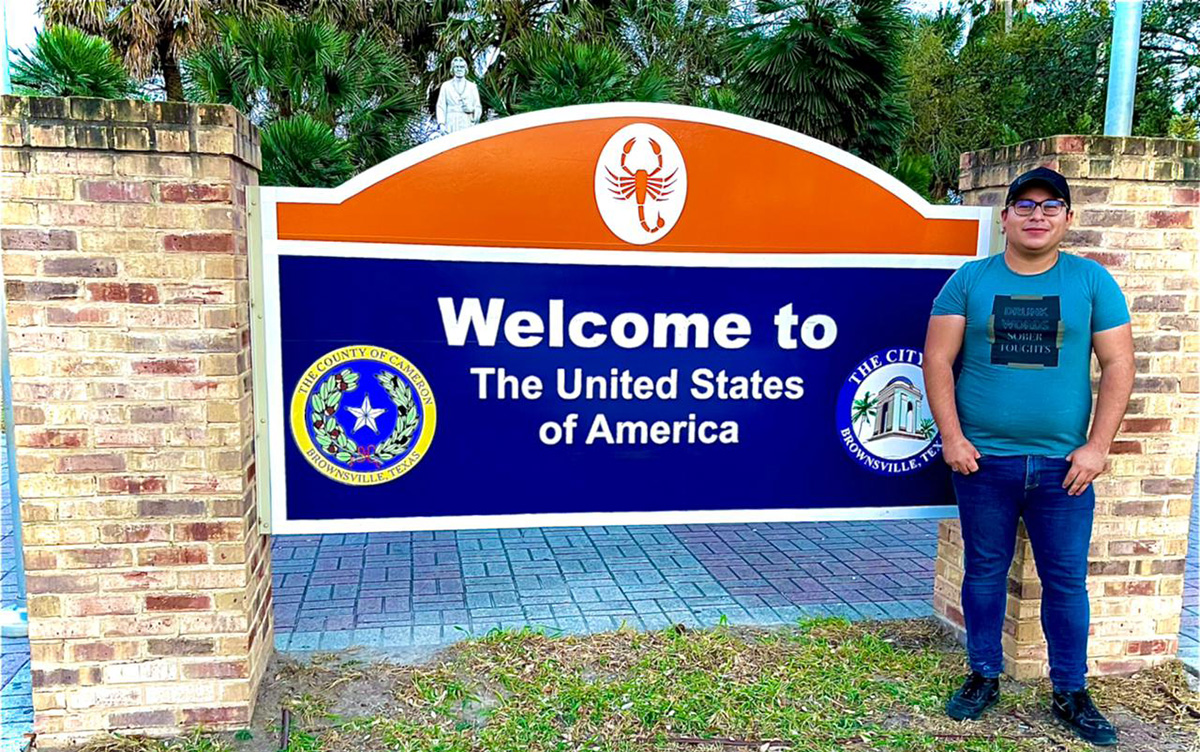News
Vatican denounces reports of gay sex scandal
Allegations of blackmail, prostitution as pope steps down


Cardinal Keith Michael Patrick O’Brien (Photo public domain)
Vatican officials this week denounced reports in the Italian press that an underground network of gay priests assigned to the Vatican organized meetings for sex and may have been subjected to blackmail.
Criticism of the press reports by a high-level Vatican spokesperson came less than a week before yet another gay-related scandal hit the Catholic Church – this time in Scotland.
British Cardinal Keith O’Brien, who has called same-sex marriage “grotesque,” announced he decided to step down a month ahead of previously announced retirement plans after allegations surfaced on Feb. 23 that he engaged in “intimate” acts with priests in the 1980s.
O’Brien denied the allegations but said on Monday he cancelled his trip to Rome this week, where he was expected to participate in the selection of a new pope. He said he didn’t want the allegations against him to overshadow the conclave of cardinals set to convene within the next week.
The Vatican immediately accepted his decision to step down from his church duties, which it viewed as a resignation.
News of the alleged network of gay priests at the Vatican surfaced last week when the Italian newspaper La Repubblica and the Italian news magazine Panorama reported that Pope Benedict XVI announced his resignation on the same day he learned of the allegations.
In a development that created an uproar at the Vatican, La Repubblica reported it received detailed information about a 300-page Vatican report prepared by three cardinals who uncovered the network of gay priests during a nine-month internal Vatican investigation.
Among other things, the report says the investigation discovered a “faction” within the Vatican “united by sexual orientation,” according to La Repubblica.
The newspaper said it had no confirmation that Benedict based his decision to resign solely on the explosive findings of the investigation. But it reported sources as saying Benedict planned to keep the findings confidential and decided to leave it up to his successor to determine how to address the matter.
“It was on that day, with those papers on his desk, that Benedict XVI took the decision he had mulled over for so long,” La Repubblica reported in its Feb. 21 edition while discussing Benedict’s resignation.
Vatican officials have since confirmed that the investigation took place but have refused to comment on its findings. Vatican spokesperson Rev. Federico Lombardi acknowledged the reports by La Repubblica and Panorama that the investigation was launched last May after one of the pope’s butlers was arrested for allegedly stealing papal correspondence and leaking it to the media.
La Repubblica reported several other findings of the investigation, including problems associated with the Vatican bank. Vatican observers in Italy speculated that various rival factions of cardinals and other Vatican officials were likely responsible for leaked information about the investigative report.
Efforts to portray rivals in a negative light are “part of the great game of the conclave, whose tools include political attacks and efforts to condition consensus,” Vatican observer and author Alberto Melloni of Bologna, Italy, told the New York Times.
Other observers have said intrigue and infighting that sometimes takes place in the process of selecting a Pope appears to be occurring at a greater intensity this time, as conservative and more progressive factions of cardinals line up behind different candidates under consideration for the papacy.
The Vatican’s Secretariat of State, its highest office, issued a statement on Feb. 23 denouncing the press accounts of the contents of the investigative report or “dossier” as “unverified, unverifiable or completely false news stories.”
In a separate statement, the Vatican said Benedict dissolved the three-cardinal investigative committee on Monday and expressed “satisfaction for the results of this investigation,” according to a report by the Washington Post.
“The Holy Father has decided that the acts of this investigation, known only to himself, remain solely at the disposition of the new Pope,” the Post quoted the statement as saying.
La Repubblica reported that the investigation uncovered an underground network of gays working at the Vatican who organized “sexual meetings” in several locations, including a sauna in Rome, a private villa just outside Rome, and a beauty salon inside the Vatican.
The newspaper also reported the investigation found some of the gay priests may have been subjected to blackmail by men not associated with the Vatican with whom they had “worldly” relations.
“When you have this culture of secrecy and guilt and repression you have conditions which foster the potential for blackmail and for manipulation,” said gay British journalist and former priest Mark Dowd in an interview with CNN.
The cardinals who headed the Vatican investigation have been identified as Julian Herranz of Spain; Jozef Tomko of Slovakia; and Salvatore De Giorgi, the former archbishop of Palermo.
The British newspaper The Guardian broke the story about Cardinal O’Brien’s alleged “gay” scandal in a story in its Feb. 23 edition.
According to The Guardian, three priests and a former priest, all from Scotland, filed a complaint against O’Brien with the Vatican’s ambassador to Britain one week before Benedict announced his resignation.
One of the complainants, The Guardian reports, charges that O’Brien “developed an inappropriate relationship with him, resulting in a need for long-term psychological counseling.”
Another, identified only as “Priest A,” described being visited by O’Brien and “inappropriate contact between the two took place,” the newspaper reported. “Priest B” claims he was invited to spend a week at the then archbishop’s residence, where he encountered “unwanted behavior by the cardinal after a late-night drinking session.”
The Guardian said “Priest C” had been seeing O’Brien for counseling over personal problems and alleges that O’Brien “used night prayers as an excuse for inappropriate contact.”
The four who filed the complaint called on the Vatican ambassador to take steps to prevent O’Brien from going to Rome to participate in the conclave to select a new pope, saying the papal selection process would be tainted if the cardinal was part of it.
O’Brien, who announced he had cancelled his trip to Rome the day after The Observer published its story, said he would obtain legal counsel to fight the allegations, which his accusers say took place in the 1980s.
The press reports about the alleged network of gay priests at the Vatican reportedly involved consenting adults, and the allegations against O’Brien involved adult victims. But the revelations of these developments prompted news media outlets in the U.S. and Europe to bring up longstanding allegations of the sexual abuse of children by pedophile priests that have plagued the Catholic Church for more than two decades.
Organizations representing victims of sexual abuse by priests have called on the Vatican to bar cardinals in the U.S. and elsewhere from participating in the selection of a new pope if they knew about priests that sexually abused juveniles but did not act to stop the abuse.
Francis DeBernardo, executive director of New Ways Ministry, a Maryland-based group that advocates for LGBT equality within the Catholic Church, told the Blade the unfolding gay sex scandal, if true, is due in part to the Vatican’s harsh position on homosexuality.
“They have created a situation where people can’t express their sexuality in healthy ways,” he said. “They can’t even deal with their sexuality in the open. So it creates a climate of suspicion and a climate of fear.”
Jeannine Gramick is a Roman Catholic nun who co-founded New Ways Ministry and serves as national coordinator for the National Coalition of American Nuns. She told the Blade she is hopeful that the scandal would nudge the church into adopting a more tolerant position on gays.
“I think the impact it should have is to point out the hypocrisy of having a very negative stance about homosexual activity between loving persons and the private secret condoning of activity that is not in the context of a committed relationship,” she said.
“So my hope is that it will bring about a re-examination of the church’s approach to sexuality to become more realistic and honest,” Gramick said.
Congress
Lawmakers champion drug policy reforms at National Cannabis Policy Summit
Congressional leaders pledged their support for decriminalization

Speaking at the 2024 National Cannabis Policy Summit on Wednesday, congressional leaders pledged their support for proposals to remedy the harms of America’s War on Drugs while protecting cannabis users and cannabis businesses that are operating under a fast-evolving patchwork of local, state, and federal laws.
Overwhelmingly, the lawmakers who attended the conference at the Martin Luther King Jr. Memorial Library in D.C. or delivered their remarks virtually were optimistic about the chances of passing legislative solutions in the near-term, perhaps even in this Congress.
Participants included U.S. Sens. Raphael Warnock (D-Ga.), Jeff Merkley (D-Ore.), Elizabeth Warren (D-Mass.), and Senate Majority Leader Chuck Schumer (D-N.Y.), along with U.S. Reps. Eleanor Holmes Norton (D-D.C.), Earl Blumenauer (D-Ore.), and Barbara Lee (D-Calif.), who co-chairs the Congressional Cannabis Caucus and was honored at the event with the Supernova Women Cannabis Champion Lifetime Achievement Award. Republicans included an aide for U.S. Rep. David Joyce (R-Ohio) who was featured in an afternoon panel discussion about the cannabis policy landscape on Capitol Hill.
Each of the members have long championed cannabis-related policy reforms, from Merkley’s SAFER Banking Act that would allow cannabis businesses to access financial services (thereby affording them the critically important protections provided by banks) to Lee’s work throughout her career to ameliorate the harms suffered by, particularly, Black and Brown communities that have been disproportionately impacted by the criminalization of marijuana and the consequences of systemic racism in law enforcement and the criminal justice system.
The lawmakers agreed America is now at an inflection point. Democratic and Republican leaders are coming together to support major drug policy reforms around cannabis, they said. And now that 40 states and D.C. have legalized the drug for recreational or medical use, or both, the congress members stressed that the time is now for action at the federal level.
Last summer, the U.S. Department of Health and Human Services issued a formal request to re-categorize marijuana as a Schedule III substance under the rules and regulations of the Controlled Substances Act, which kicked off an ongoing review by the Biden-Harris administration. Since the law’s enactment in 1971, cannabis has been listed as a Schedule I substance and, therefore, has been subject to the most stringent restrictions on and criminal penalties for its cultivation, possession, sale, and distribution.
Merkley acknowledged that re-scheduling would remedy the Nixon administration’s “bizarre” decision to house marijuana under the same scheduling designation as far more harmful and addictive drugs like heroin — and noted that the move would also effectively legalize biomedical research involving cannabis. However, the senator said, while re-scheduling “may be a step in the right direction, it’s not de-scheduling” and therefore would not make real inroads toward redressing the harms wrought by decades of criminalization.
Likewise, as she accepted her award, Lee specified that she and her colleagues are “working night and day on the legalization, not re-scheduling.” And her comments were echoed by Warren, who proclaimed in a prerecorded video address that “de-scheduling and legalizing cannabis is an issue of justice.”
Congressional Republicans have blocked legislation to legalize marijuana, the Massachusetts senator said, “and that is why the scheduling is so important,” as it might constitute a “tool that we can use to get this done without Republican obstruction.”
Warren, Merkley, and Schumer were among the 12 Senate Democrats who issued a letter in January to the U.S. Drug Enforcement Administration requesting transparency into its re-scheduling process while also, more importantly, demanding that the agency fully de-schedule cannabis, which would mean the drug is no longer covered by the Controlled Substances Act.
However, in a possible signal of political headwinds against these efforts, their Republican colleagues led by U.S. Sen. Mitt Romney (R-Utah) responded with a letter to DEA Administrator Anne Milgram “highlighting concerns over HHS’s recommendation to reschedule marijuana from a Schedule I to Schedule III-controlled substance.” The GOP signatories, all of whom serve on the Senate Foreign Relations Committee, also sought to “underscore the Drug Enforcement Administration’s (DEA) duty under the Controlled Substances Act (CSA) to ensure compliance with the United States’ treaty obligations under the Single Convention on Narcotic Drugs.”
As Norton noted during her prepared remarks, elected Democrats are not necessarily always on the same page with respect to expanding access to economic opportunity facilitated by cannabis. For instance, though President Joe Biden had promised, during his State of the Union address this year, to direct his “Cabinet to review the federal classification of marijuana, and [expunge] thousands of convictions for mere possession,” Norton blamed Biden along with House Republicans for provisions in the federal budget this year that prohibit D.C. from using local tax dollars to legalize cannabis sales.
A non-voting delegate who represents the city’s 690,000 residents in the House, Norton called the president’s position “deeply disappointing,” particularly considering his record of supporting “D.C. statehood, which would allow D.C. to enact its own policies without congressional interference” and grant its residents voting representation in both chambers of Congress. She added that the majority of Washingtonians are Black and Brown while all are held responsible for “the obligations of citizenship including paying federal taxes.”
Norton said the city should also have the power to grant clemency for crimes committed in the District, including cannabis-related crimes — power that, currently, can only be exercised by the president.
Some Republican lawmakers have been at the forefront of efforts to reform harmful cannabis regulations. For instance, a participant in a mid-afternoon panel pointed to the CURE Act, a bill introduced by U.S. Reps. Nancy Mace (R-S.C.) and Jamie Raskin (D-Md.) that would prohibit the federal government from denying security clearances based on applicants’ past or current use of cannabis.
While securing statehood for D.C. and de-scheduling cannabis via legislation or administrative action are perhaps, at least for now, a heavy lift, Merkley pointed to promising new developments concerning his SAFER Banking Act.
The Oregon senator first introduced the measure, then titled the SAFE Banking Act, in 2019, and he said the legislation’s evolution into its current iteration was difficult. “Regulators don’t want to be told what to do,” Merkley said, and negotiations with these officials involved “nitty-gritty arguments over every word.”
Pushback also came from one of Merkley’s Democratic colleagues. In September, Warnock, who is Georgia’s first Black U.S. senator, voted “no” on the 2023 version of the SAFER Banking Act, writing: “My fear is that if we pass this legislation, if we greenlight this new industry and the fees and the profits to be made off of it without helping those communities” most harmed by the War on Drugs “we will just make the comfortable more comfortable.”
Warnock’s statement followed his pointed remarks expressing concerns with the legislation during a Senate Banking Committee hearing.
“Let me be very clear,” he said, “I am not opposed to easing or undoing federal restrictions around cannabis. And I would support all of the provisions and reforms in this legislation if paired with broader cannabis reforms that substantively address the issue of restorative justice. This bill does not do that.”
At this point, however, the latest version of the SAFER Banking Act has advanced out of committee and earned the support of Senate leaders including Schumer and much of the Republican conference.
“This is the moment,” he said. “Let’s not let this year pass without getting this bill — the safer banking bill — through the House, through the Senate, and on the president’s desk.”
In her remarks, Lee also discussed the importance of business and industry-wide reforms like those in Merkley’s bill.
“We have to make sure that the cannabis industry is viewed by everyone, especially our federal government, as a legitimate business,” Lee said. “Legitimate, which deserves every single aspect of financial services that any legitimate business deserves and has access to.”
Like Warnock, the congresswoman also highlighted how these financial and business considerations intersect with “equity issues,” as “those who have been most impacted by this horrible War on Drugs” must “become first in line for the businesses and for the jobs and for the economic opportunity the cannabis industry provides.”
Reflecting on her experience introducing the Marijuana Justice Act in 2019, which was Congress’s first racial justice cannabis reform bill, Lee remembered how “everyone was like, ‘why are you doing this? It’s politically not cool.’” Her legislation sought to end the federal criminalization of marijuana, expunge the criminal records of those convicted of cannabis-related crimes, and reinvest in communities that have suffered disproportionately from the War on Drugs.
The congresswoman said she explained to colleagues how the bill addressed “many, many layers” of often-intersecting problems linked to federal cannabis policy, telling them: “This is a criminal justice issue, a racial justice issue, an issue of equity, a medical issue, a veterans’ issue, and an issue of economic security.”
Two years later, with a 220-204 vote, the House successfully passed the Marijuana Opportunity Reinvestment and Expungement Act, a comprehensive bill introduced by U.S. Rep. Jerry Nadler (D-N.Y.) and to the Senate by then-U.S. Sen. Kamala Harris (D-Calif.). The measure included Lee’s Marijuana Justice Act.
“This bill is the product of many, many years of advocacy for federal cannabis reform and equity,” she said in a statement celebrating the bill’s passage. “Make no mistake: This is a racial justice bill. It’s about the thousands of people of color who sit in jail for marijuana offenses while others profit. It’s about finally repairing the harms of the War on Drugs on communities and families across the country.”
“We’ve come a long way,” she told the audience on Wednesday. “And now we have a long way to go.”
Virginia
Norfolk transgender resource center vandalized
Anti-trans graffiti spraypainted onto Southeastern Transgender Resource Center’s windows

The Norfolk Police Department is investigating the vandalism of a transgender resource center’s building.
Tarena Williams, founder of the Southeastern Transgender Resource Center, told WAVY that someone spraypainted anti-trans graffiti on the windows of her organization’s offices on Sunday or Monday morning. Williams told the Hampton Roads television station that seeing the messages was like “walking into hell.”
“I opened up STRC, even the Lamina House,” she told WAVY. “I opened up that to get away from those types of words. This is a place you can come to get away from that, but to see that sprayed over the window. It’s kind of like you are walking into hell. … To be honest, I was like in shock.”
Authorities are investigating the vandalism.

The U.S. has granted asylum to a Guatemalan LGBTQ activist who fled his country in 2019.
Estuardo Cifuentes and his partner ran a digital marketing and advertising business in Guatemala City.
He previously told the Washington Blade that gang members extorted from them. Cifuentes said they closed their business after they attacked them.
Cifuentes told the Blade that Guatemalan police officers attacked him in front of their home when he tried to kiss his partner. Cifuentes said the officers tried to kidnap him and one of them shot at him. He told the Blade that authorities placed him under surveillance after the incident and private cars drove past his home.
Cifuentes arrived in Matamoros, a Mexican border city that is across the Rio Grande from Brownsville, Texas, in June 2019. He asked for asylum in the U.S. based on the persecution he suffered in Guatemala because of his sexual orientation.
The Trump administration forced Cifuentes to pursue his asylum case from Mexico under its Migrant Protection Protocols program that became known as the “remain in Mexico” policy.
Cifuentes while in Matamoros ran Rainbow Bridge Asylum Seekers, a program for LGBTQ asylum seekers and migrants that the Resource Center Matamoros, a group that provides assistance to asylum seekers and migrants in the Mexican border city, helped create.
The Biden-Harris administration in January 2021 suspended enrollment in MPP. Cifuentes entered the U.S. on March 3, 2021.
“We are profoundly relieved and grateful that my husband and I have been officially recognized as asylees in the United States,” Cifuentes told the Blade on Monday in an email. “This result marks the end of a long and painful fight against the persecution that we faced in Guatemala because of our sexual orientation.”
Vice President Kamala Harris is among those who have said discrimination and violence based on sexual orientation are among the root causes of migration from Guatemala and other countries in Central America.
Cifuentes is now the client services manager for Lawyers for Good Government’s Project Corazón, a campaign that works “hard to reunite and defend the rights of families impacted by inhumane immigration policies.” He told the Blade he will continue to help LGBTQ asylum seekers and migrants.
“In this new chapter of our lives, we pledge to work hard to support others in similar situations and to contribute to the broader fight for the rights and acceptance of the LGBTQ+ migrant community,” said Cifuentes. “We are hopeful that our story will serve as a call to action to confront and end persecution based on gender identity and sexual orientation.”
-

 Africa3 days ago
Africa3 days agoCongolese lawmaker introduces anti-homosexuality bill
-

 Colorado5 days ago
Colorado5 days agoFive transgender, nonbinary ICE detainees allege mistreatment at Colo. detention center
-

 World3 days ago
World3 days agoOut in the World: LGBTQ news from Europe and Asia
-

 Real Estate5 days ago
Real Estate5 days agoBoosting your rental property’s curb appeal










